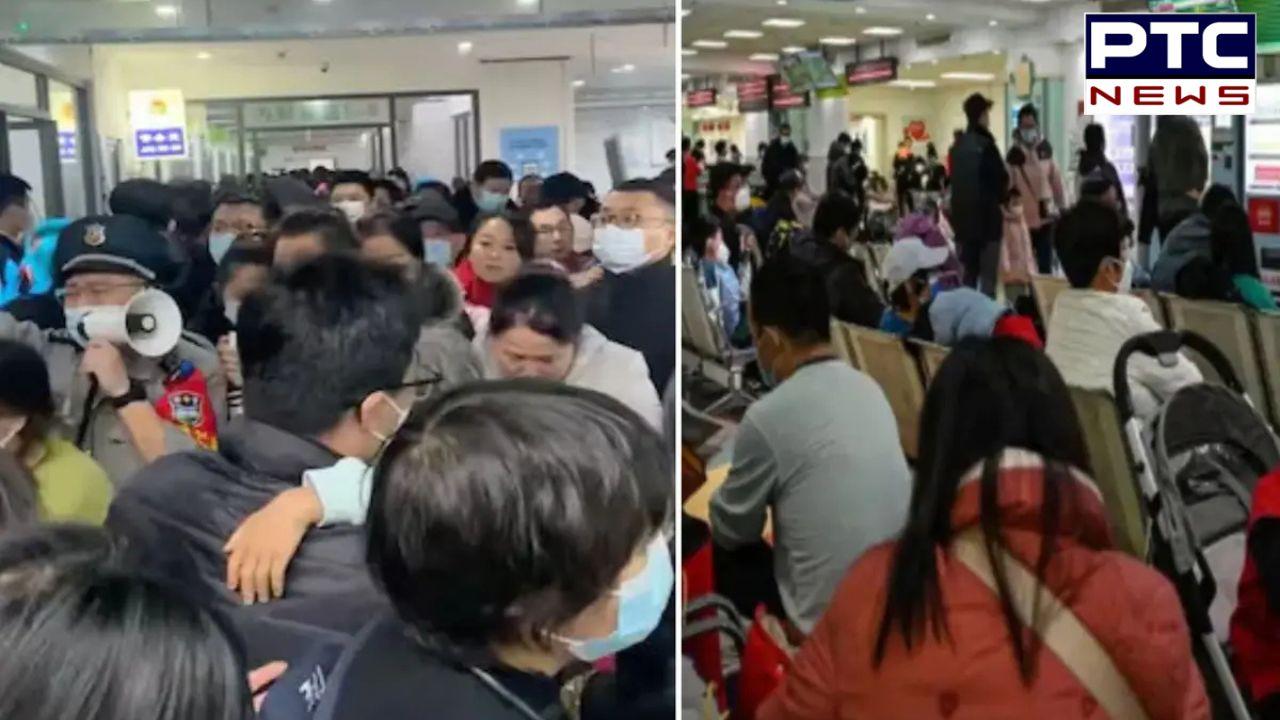

Human Metapneumovirus (HMPV) outbreak in China: What you need to know
PTC Web Desk: China is reportedly facing a surge in cases of Human Metapneumovirus (HMPV), as per several social media claims. These posts indicate that the virus is spreading rapidly, primarily affecting vulnerable groups such as children and the elderly. However, there has been no official confirmation from the Chinese health authorities regarding the severity of the situation.
One widely shared post, originating from a social media handle named SARS-CoV-2 (COVID-19), alleges that the outbreak has overwhelmed hospitals and crematoriums, prompting a supposed state of emergency in the country. The post also highlights a significant strain on pediatric hospitals due to rising cases of pneumonia and "white lung" syndrome.
In addition to HMPV, other viruses, including Influenza A, Mycoplasma pneumoniae, and the Covid-19 virus, are reportedly contributing to the growing health burden. Despite these alarming claims, the Chinese health authorities have not issued any statements categorising HMPV as an epidemic or confirming the social media reports.
Understanding Human Metapneumovirus (HMPV)
HMPV, first identified in 2001, belongs to the Pneumoviridae family, which also includes the Respiratory Syncytial Virus (RSV). It is known to cause symptoms similar to the common cold, including:
Cough or wheezing
Runny nose
Sore throat
For healthy individuals, HMPV typically results in mild symptoms. However, it can lead to severe complications in young children and elderly individuals and those with compromised immune systems, In more severe cases, the virus can progress to lower respiratory infections, causing pneumonia, bronchitis, or exacerbating conditions like asthma and chronic obstructive pulmonary disease (COPD).
Symptoms and incubation period
According to the US Centers for Disease Control and Prevention (CDC), the incubation period for HMPV ranges between 3 to 6 days. Symptoms of HMPV infection may include:
Fever
Shortness of breath
Coughing
Wheezing
In severe cases, HMPV symptoms can worsen and resemble those caused by other respiratory infections, such as Covid-19.
Prevention measures for HMPV
Since there is no vaccine or specific antiviral treatment for HMPV, preventive measures are crucial to limit its spread. Health officials recommend:
Washing hands frequently with soap and water for at least 20 seconds.
Avoiding touching the face (eyes, nose, or mouth) with unwashed hands.
Maintaining distance from individuals exhibiting cold or flu-like symptoms.
Wearing masks in public spaces, particularly for individuals experiencing respiratory symptoms.
Covering the mouth and nose with a tissue or elbow when sneezing or coughing.
HMPV vs. Covid-19
Both HMPV and Covid-19 share overlapping symptoms, such as coughing, fever, wheezing, and shortness of breath, making them difficult to differentiate without specific diagnostic tests. A study published in the Virology Journal in April 2024 highlighted a notable increase in HMPV cases in Henan, China, following the Covid-19 pandemic. Between April 29 and June 5, 2023, HMPV infections were detected and hospitalized daily, according to the research findings.
- With inputs from agencies
